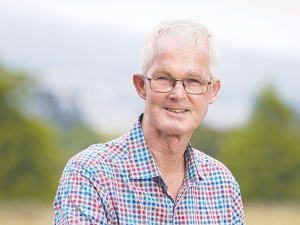DairyNZ Calls for Changes to Government’s Proposed Resource Management Act Reform
DairyNZ says the Government’s proposed Resource Management Act reform needs further work to ensure it delivers on its intent.
 DairyNZ chair Jim van der Poel says farmers want to be recognised for their own emissions, not just an industry average.
DairyNZ chair Jim van der Poel says farmers want to be recognised for their own emissions, not just an industry average.
DairyNZ chairman Jim van der Poel says the He Waka Eke Noa HWEN) climate proposal is a win-win for all New Zealanders.
Speaking to Dairy News at the launch of the HWEN proposal last week, he noted that while it was not easy to reach a solution, the actual outcome is fit for purpose.
He says, during the HWEN consultation programme, 99% of farmers opposed agriculture being included in the ETS and 86% supported the farm-level proposal.
"This is because farmers want to be recognised for their own emissions, not just an industry average, and if they have some behavioural change or if they do something on farm to lessen their emissions, they want to be recognised for that," he says.
Van der Poel says under the HWEN proposal there is an opportunity for levy funds to be recycled back to fund new research and tools to fund new research and tools to further help farmers reduce their emissions. He says the consultation process, although run at a difficult time during the pandemic, still saw 2,600 farmers engage by attending workshops or tuning into webinars. He says that feedback helped shape DairyNZ's position.
"Unlike the ETS, the HWEN system will actually reduce emissions, and will recognise and incentivise on-farm actions. It will invest in R&D to find new solutions, building on the already significant primary sector investment - including by dairy farmers - via DairyNZ," he says.
He says the proposal is expected to reduce methane emissions by between 4 to 5.5%. He says alongside other actions underway to reduce emissions, HWEN would help achieve methane emission reductions of 10%, in line with the legislated reduction target.
"Crucially, the He Waka Eke Noa system would enable farmers to continue running successful businesses, which means we continue contributing to our families, the economy and local communities," he says.
Van der Poel says DairyNZ fought really hard for an opportunity to develop a better solution after the Government passed legislation to say it would put agriculture into the ETS. He says there is an proposal, given that they have gone into this process in good faith. He says they will work with government to get their support.
As for the critics, Van der Poel had this to say: "There are always parties who are going to play politics around this - that is to be expected.
"But now our objective is to put something in place that works for farming, helps NZ meet its commitment to the Paris Accord and is enduring so that it sits out of the three-year political cycle."
Budou are being picked now in Bridge Pā, the most intense and exciting time of the year for the Greencollar team – and the harvest of the finest eating grapes is weeks earlier than expected.
The Real Estate Institute of New Zealand (REINZ) has released its latest rural property report, providing a detailed view of New Zealand’s rural real estate market for the 12 months ending December 2025.
Rural retailer Farmlands has released it's latest round of half-year results, labeling it as evidence that its five-year strategy is delivering on financial performance and better value for members.
OPINION: "We are back to where we were a year ago," according to a leading banking analyst in the UK, referring to US president Donald Trump's latest imposition of a global 10% tariff on all exports into the US.
DairyNZ says the Government’s proposed Resource Management Act reform needs further work to ensure it delivers on its intent.
Overseas Trade Minister Todd McClay says he's working constructively with the Labour Party in the hope they will endorse the free trade agreement (FTA) with India when the agreement comes before Parliament for ratification.
OPINION: Expect the Indian free trade deal to feature strongly in the election campaign.
OPINION: One of the world's largest ice cream makers, Nestlé, is going cold on the viability of making the dessert.